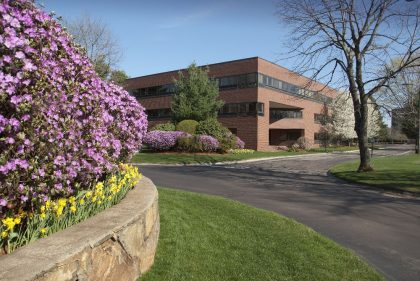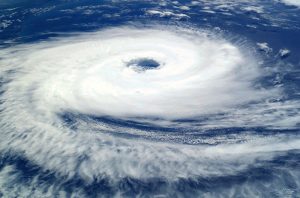Storm-Ready Safety Tips for your Commercial HVAC System
New Jersey summers typically bring lots of thunderstorms, and hurricanes are always a possibility as well. Hail, lightning, and high winds can result in significant damage to your HVAC system, thereby posing a risk to your business and livelihood. You can’t stop the forces of Mother Nature, but you can minimize the potential for damages. Here’s how.
#1. Maintain your Landscaping
Fallen limbs, if heavy enough, could potentially crush an outdoor unit. In addition, smaller branches or even sticks could become lodged in the fins, thereby rendering it inoperable. You can reduce the odds of damage by:
- Pruning trees and shrubs
- Removing weeds and other vegetation
- Raking up leaves, twigs, sticks, and other debris.

#2. Ensure Good Drainage
Outdoor units can easily withstand most downpours. What they are not equipped to deal with is flooding. Rooftop units, in particular, are vulnerable to standing water, especially those located on flat roofs.
If your rooftop houses equipment, make sure no water is pooling on the surface. Your roof should also contain one or more drains that are usually located inside of a basin. Remove any leaves or debris from inside the drain, and see to it that the opening itself is fully accessible. Visually check for any structural defects that might cause your roof to hold water.
For ground-level units, proper placement is key. A spot with an adequate slope will allow for good drainage and keep water from accumulating inside your equipment. Not sure if your location provides adequate protection? Contact South Jersey Heating and Cooling to schedule your inspection.
#3. Tie it Down
Hurricane winds can reach anywhere from 74 to 215 miles per hour. That’s strong enough to pick up an air conditioner and hurl it thousands of feet. Accordingly, you’ll want to make sure your unit is properly secured.
Rooftop units are attached to a roof curb using hold-down brackets or straps. Outdoor systems, on the other hand, are normally bolted to a concrete slab or pad. To hold during heavy winds, the hardware must be properly secured and free from excessive rust or damage.
Don’t just assume that your air conditioner is sufficiently tied down. Instead, let us inspect your anchoring devices and the surfaces they’re attached to. In some cases, we may even be able to install additional bracing for even more protection.
#4. Designate a Weather Monitor
Contrary to popular belief, lightning does strike the same place twice. In fact, the Centers for Disease Control (CDC) estimates that the Empire State Building is struck by lightning more than 100 times each year. While tall, pointy objects are often targets, smaller ones like your air conditioner can attract lightning as well.
Lightning has a tendency to destroy heating and cooling systems. Should that happen, you could be on the hook for thousands of dollars, as lightning claims are frequently denied by commercial insurance carriers.
What’s the best way to prevent lightning strikes? By turning off your equipment whenever possible. As such, you should appoint a weather monitor to keep an eye on conditions and turn off your system when lightning is imminent. In case of very high winds, that same person could also be responsible for covering any outdoor units.
#5. Keep your System Well Maintained
A well-maintained system is more likely to withstand inclement weather. That means having regular tune-ups performed by our HVAC professionals. During a service appointment, we’ll clean, lubricate, and test delicate components, and will note any areas that need improvement.
Make sure the next summer storm does not catch you off guard. Contact South Jersey Heating and Cooling today to schedule your service appointment.









